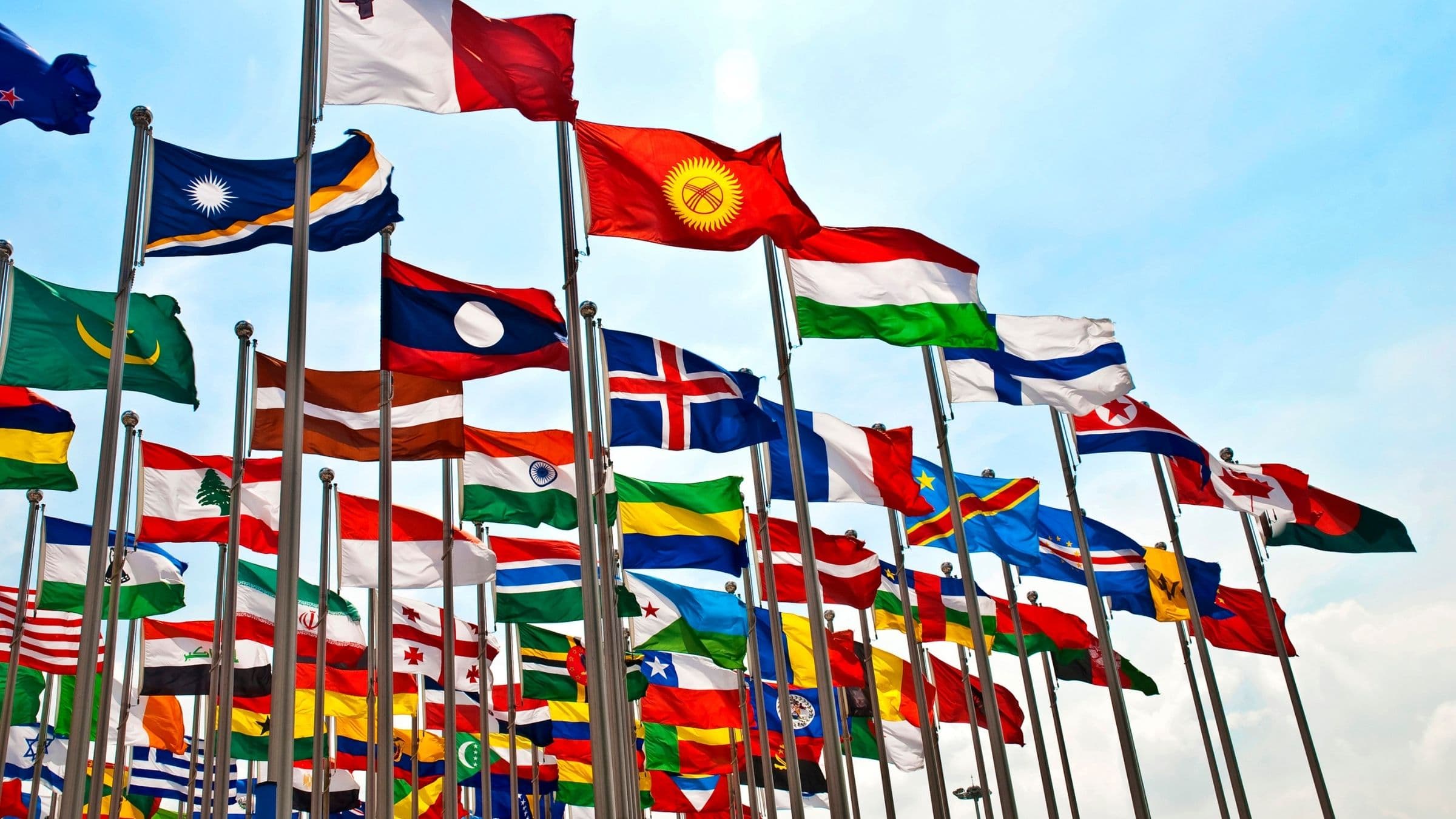
COUNTRY PROFILE
Discover more about the Taiwan market including overviews about the retail, foodservice, and food-processing sectors. Events, resources, and more are linked throughout the profile.

$3.7 billion
in food and agricultural products imported from the U.S. in 2023

10th
largest U.S. export market for processed foods

$648.2 million
in processed foods imported from the U.S. in 2023
Euromonitor International, a market research provider, reports that in 2022, Taiwan’s economy slowed due to weak demand from major trade partners, especially China. With the global economy slowing down in 2023, Taiwan’s growth decelerated further, with escalating geopolitical tensions posing downside risks. Nevertheless, inflation is set to remain well-contained, supporting private consumption, while heavy government investments in education and technology will boost the country’s competitiveness. Other factors of note include:
Despite China remaining Taiwan’s primary trade partner, escalating geopolitical tensions between the two nations are set to continue constraining trade. In 2022, for example, China suspended exports of natural sand to Taiwan, a vital component for semiconductor chip production, and imports of over 2,000 food products following a visit by U.S. officials to Taiwan. Additionally, China banned Taiwan from joining the Regional Comprehensive Economic Partnership (RCEP), a new trading bloc among 10 ASEAN countries, Australia, China, Japan, New Zealand, and South Korea, which came into effect in 2022.
Economic uncertainties and risks have increased, taking a toll on Taiwan’s growth prospects. According to the global stagflation scenario, worse-than-expected global negative spillovers from Russia’s invasion of Ukraine would lead to stagnant global economic growth combined with high inflation (stagflation). Rising geopolitical tensions would negatively impact private sector confidence and cause further disruptions to global energy and food supply, increasing the likelihood of more persistent price pressures. Under this scenario, Taiwan’s economy would contract by -2 % annually in real terms in 2023 but grow by only 0.4% in 2024.
In 2023, Taiwan’s population was 23.6 million (CIA World Factbook Est.). The median age had risen to 44 years in 2023, 11.6 years greater than the figure for 2000 and well above the regional average. Taiwanese society is clearly aging, and that process will accelerate over the next 15 years. The aging process is also reflected in the fertility rate, which fell to just 1.25 births per female in 2024. This is one of the lowest rates of any major Asian country. The number of people over 65 years of age was 4.3 million in 2023, which is about 18% of the population and is expected to account for nearly 20% of the island’s total population by 2025.
USDA’s Agricultural Trade Office (ATO) in Taipei, hereinafter referred to as FAS Post Taipei, reports that as the U.S.’s sixth-largest export market for food and agricultural products, Taiwan imported US$3.7 billion of food and agricultural products from the U.S. in 2023, a decline of 15% from the record high in the previous year. The island is highly dependent on agricultural imports due to its insufficient farmland. This is paired with the fact that it has one of the highest disposable incomes in north Asia. Local consumers are actively seeking out high-end and exotic products and experiences, which make Taiwan a land full of opportunities.
Taiwan is a sophisticated consumer market in which customers closely follow global trends, particularly those in the U.S. and Japan. Taiwan consumers are among the well-traveled people in the world. U.S. products are well represented in the market, as are products from across the region, especially China and other lower-cost producers. Taiwan is a good target market for high-quality, differentiated products but also agricultural commodities.
Taiwan has concluded free trade agreements with Belize, El Salvador, Honduras, Guatemala, Panama, China, Singapore, Paraguay, Eswatini, Marshall Islands, and New Zealand. Among these competitors, New Zealand’s economic partnership agreement with tariff-free access for a wide variety of products, including dairy and fresh fruits, remains the most significant challenge to many U.S. exports.
Taiwan is the 10th largest U.S. export market for processed foods, totaling US$648.2 million in 2023, a decline of 9% from 2022. That equates to US$66 million, which goes against the U.S. trade deficit in food and agricultural products.
Top processed export products imported by Taiwan in 2023 included:

$12.5 billion
estimated retail sales in the packaged food market in 2023

$32.8 billion
total sales generated by Taiwan’s retail outlets in 2022

10,000+
convenience stores nationwide
According to Euromonitor, retail sales in the packaged food market in Taiwan were estimated to reach US$12.5 billion in 2023. That represents a growth rate of 17.2% or US$1.5 billion since 2019. By the year 2028, retail sales in the packaged food market in Taiwan is expected to reach US$14.9 billion, a growth rate of 13.7%, or US$1.8 billion from 2024.
High growth products in the forecast include:
FAS Post Taipei reports that sales generated by Taiwan’s retail outlets, including supermarkets, convenience stores, hypermarkets, and others totaled US$32.8 billion in 2022, an increase of 5.1% from 2021 sales of US$31.3 billion. Convenience store sales experienced the strongest annual growth out of all other retailers at 5.7% due to most companies ending their teleworking policy.
Taiwan has the second highest density of convenience stores with over 10,000 stores island wide. Convenience stores play a huge part of Taiwan consumers’ everyday life. There is one convenience store for every 1,500 people in Taiwan, the second highest ratio in the world after South Korea. Convenience stores in Taiwan run 24-7 and offer a wide range of goods and services, including freshly brewed coffee and teas; tuition, utilities, and other bill payment collection; printing and faxing; transportation (e.g., trains) and entertainment (e.g., concerts) tickets; and e-retail package pick-ups.
Hypermarkets: In terms of sales generated, foreign operator Costco dominates the Taiwan market. Their Taiwan stores are some of the highest performing stores in the world, showing how impressive Taiwan consumer buying powers are. In 2023, the biggest retail conglomerate Uni President, who owns the 7-Eleven brands, acquired Carrefour from the French group, which means it now operates more than 6,500 7-Eleven convenience stores, 68 Carrefour hypermarket stores, 246 Carrefour supermarket stores, and 22 high-end supermarket stores call Mia C’bon. At the same time, PX Mart supermarket acquired RT-Mart hypermarket (21 stores). Both retailers now own their respective supermarket and hypermarket stores and are in fierce competition to dominate the market. In terms of merchandise carried, Costco and Carrefour have products from all over the world, while AMart and RT Mart carry products mainly from Taiwan.
Supermarkets: PX Mart dominates the supermarket market share in Taiwan with over a thousand locations locally. It has teamed up with delivery services such as Uber Eats and FoodPanda to provide grocery delivery services. PX Mart has the widest range of products out of all the other competitors, including organic produce and plant-based protein. Meanwhile, Simple Mart is taking a different approach and opening new shops in residential areas to better cater to local communities.
Other than the major supermarket chains, there are also high-end supermarket stores such as CitySuper (eight stores) and Breeze Super (three stores) that exclusively operate in department stores. These supermarkets provide exotic and foreign products, 80% of them imported, to consumers who are willing to pay premium prices.
With their strong purchasing power of over US$33,000 per capita GDP forecast for 2024, Taiwan consumers enjoy new and high-quality products, especially those from the United States, Europe, Japan, and South Korea. Fastest Growing Taiwan imports of consumer-oriented-products in Taiwan in 2022 included beef, processed vegetables, wine, poultry, pet food, and coffee.

$27 billion
estimated economic output of Taiwan’s foodservice sector in 2022

14.6%
year-on-year growth in exports of U.S. consumer-oriented agricultural products to Taiwan

$33,000
per capita GDP
FAS Post Taipei reports that Taiwan’s Hotel Restaurant Institutional (HRI) industry has fully bounced back with 2022 revenue surpassing pre-pandemic records. The market has a westernized palate with a high per capita GDP of over US$33,000, showing that consumers are not only willing but also more than capable of trying foreign cuisines. Notably, exports of U.S. consumer-oriented agricultural products to Taiwan grew 14.6% year-on-year. The U.S. continues to be the leading supplier of various food ingredients for the market, such as beef, poultry, and vegetables. However, some countries, including New Zealand, have signed FTAs with Taiwan, thus becoming fierce competition for U.S. exporters.
According to the Taiwan Ministry of Economic Affairs (MOEA), the estimated economic output of Taiwan’s foodservice sector in 2022 was $27 billion, which increased 18.8% from 2021. The industry is back in full swing from the pandemic with the borders open for tourism. Other factors such as the rise of consumer income, smaller family sizes, a growing number of working women, and the growth of e-commerce and take-out delivery services have helped the foodservice sector grow.
Food and beverage managers and executive chefs working in major international hotels are the key individuals who make purchasing decisions. Hotels, especially those that employ foreign chefs or offer authentic international cuisines, typically use more items from importers than wholesalers or distributors. Western and local fast-food restaurant chains usually either have their own distribution channels or contract with an independent distribution center to purchase, process, and deliver food ingredients. Fast-food chains also maintain their own research and development teams or work in close collaboration with one or more contracted catering services to develop and frequently renew menus to meet consumers’ demand.
Hotel restaurants and buffets are popular dining choices for Taiwanese consumers, making foodservice a significant source of revenue for hotels. Peak business periods include major local and western holidays, such as Valentine’s Day and Christmas. Promotions that correspond with international holidays, such as discounts on American cocktails during Independence Day and buy-one-get-one-free beer during Oktoberfest, are also widely observed in the market. In addition, hotels regularly develop gift boxes for gift-giving seasons, such as moon cakes for Mid-Autumn Festival and rice dumplings for Dragon Boat Festivals, in which high-end ingredients are used and are heavily advertised. These phenomena present great business opportunities and a clear timeline for U.S. exporters.
Evergreen Sky Catering Corporation, China Pacific Catering Service, TransAsia Catering Services, Ltd., and the Kaohsiung Airport Catering Services dominate the local air catering market. Because of the intense competition between them, the companies are aggressively expanding their catering business to include local convenience stores, restaurants, coffee shops, schools, and hospitals. The companies mostly purchase ingredients from local importers, manufacturers, and wholesalers while importing meat and poultry directly.
Airline catering is among one of the food industries that was hit the hardest during the COVID-19 pandemic. Some companies made quick changes to create their own ready-to-eat and frozen food brands to gain a competitive advantage.
The U.S. is a leading supplier of agricultural products and exports many high-valued consumer-oriented products, including beef, poultry, fresh fruit and vegetables, dairy, tree nuts, processed foods, and beverages that are used by foodservice operations. Other major competitors in the market include New Zealand, Australia, Thailand, Japan, Canada, and EU countries.
FAS Post Taipei reports that the best prospect products for U.S. exporters in the foodservice sector include beef and beef offal, chicken, fresh vegetables, cheese, and tree nuts.

$22 billion
in processed food and beverages produced in 2022

7,601
manufacturers of processed food and beverages

4.3%
of total manufacturing value of Taiwan consists of processed food and beverages
FAS Post Taipei reports that the Taiwan food processing industry is composed of 7,601 manufacturers that produced almost US$22 billion of processed food and beverages in 2022. This production accounts for approximately 4.3% of the total manufacturing value of Taiwan. Consumers’ preference for convenience and a growing interest in food health and safety have influenced the industry to develop easy-to-prepare meals, healthier options, clean labels, and other initiatives.
Since the Russian invasion of Ukraine broke out in February 2022, Taiwan has been receiving global attention due to the fact that its political situation resembles Ukraine’s. In August 2022, the U.S. Speaker of the House Nancy Pelosi visited Taiwan to put emphasis on the goodwill between the two countries. Since then, China has started to block Taiwan agricultural export, which included seafood, fruits, and alcoholic beverages. In consequence, Taiwan’s agricultural export in 2022 dropped 2.2% to US$3.7 billion.
As an aged society with people over 65 years old accounting for close to 20% of its population, the food and beverage trends in Taiwan focus on low additives, additional health benefits, clean label, locally sourced, creative combinations, and strong social media marketing. Across 21 subsectors of the food processing industry, the top five largest sub-sectors by value are animal feed, non-alcoholic beverages (e.g., juice, tea), chilled/frozen/processed meat, edible fat and oil, and dairy, representing 11.7%, 8.2% 8.1%, 6.6%, and 5.8% of food processing industry’s total production value, respectively.
In addition to the currently strong demand for dairy products, the growing market of products for elderly consumers is poised to demand more quality proteins. Products like oat milk, veggie meat, soybean ingredients, seafood, and other products are showing sales growth potential in the next decade.
Given Taiwan’s relatively limited agricultural land (less than two million acres), Taiwan is highly dependent on imports of ingredients and feed. For bulk commodities, such as soybeans, corns, and wheat, Australia and Brazil are key U.S. competitors with a stable supply that provides trade promotional support. For dairy products, the U.S. faces significant price competition from New Zealand. New Zealand’s price advantage results from a free trade agreement signed with Taiwan in 2013 that eliminates tariffs over a 12-year implementation period.
FAS Post Taipei reports that although COVID-19 dampened overall agricultural imports in 2020, Taiwan will remain one of the most reliable export destinations for U.S. food processing ingredients. Best prospects for U.S. exporters in this sector include cheese, tree nuts, non-GMO soybeans, dried fruit, fluid milk, roasted malt, pre-mixes and frozen dough, cereal grains, barley, frozen fruit, whey protein concentrate, and soybeans.